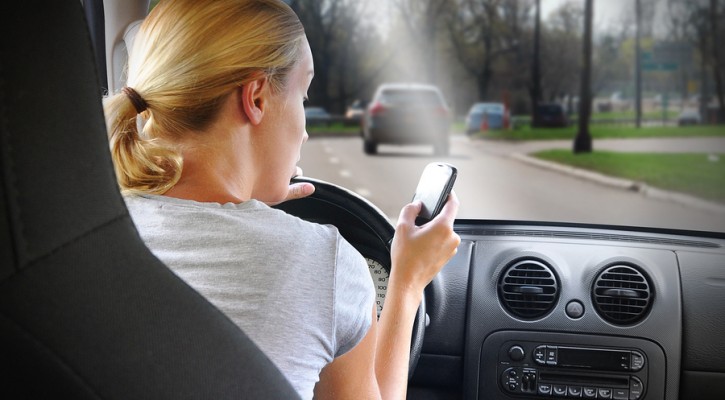Tag Archive: Hands free cell phones

Why Hands Free Phones Aren’t Safer For Drivers
July 28, 2015
Hands free phones aren’t any safer for drivers than hand held phones according to research from Carnegie Mellon University.
Cars are becoming more and more connected to the web with dashboard screens that essentially act as a built in smartphone with many of the features seen in a typical computer. Auto manufacturers say they’re providing what the customer wants but, while cars are being made safer in other areas, the addition of these web connected devices are creating the potential for even more distracted drivers on the road. The manufacturers are also pushing the idea that hands free phones and texting are safer than using handheld devices but the scientific evidence doesn’t back that up.
In 2008, the Carnegie Mellon Center for Cognitive Brain Imaging published a study that used brain imaging to see what actually goes on in the brain while a driver is engaged in a phone conversation.
To conduct the study, 29 volunteer subjects “drove” over a simulated driving course while inside an MRI brain scanner. The subjects had to maintain speed while steering along a winding course. For the first test, the test subjects drove the course without any interruptions. In the second test, the subjects had to drive the course while listening to and answering true or false questions.
While driving without interruptions, the area of the brain that showed the greatest activity was the area responsible for “spatial awareness”; the area of the brain most associated with the complex task of safely steering a car
When the subjects had to listen and answer questions while driving, the activity in the brain’s spatial awareness area was reduced by 37 percent and the area of the brain associated with language comprehension showed the greatest activity.
In spite of all the modern day hubbub about the ability to multitask, the results of the study convinced the researchers that the brain itself isn’t capable of multitasking. The brain has to ignore other demands in order to do one task effectively.
If someone is using a phone while driving, whether it be a handheld or hands free phone, the brain is concentrating on the content of the call, not on the task of driving. When activity in the area of the brain responsible for steering a car and watching the road is reduced, it can be easy to miss a potentially hazardous situation ahead and that can lead to tragedy.
Other, more recent studies have shown that voice activated phone and texting systems such as Apple’s Siri or Google’s voice activated search can be even more distracting than using a hand held phone because of the frustrations experienced when the system fails to understand your requests. Studies also show that the distractions of smartphone notifications, even when they aren’t answered, can lead to driving mistakes.
The best advice for drivers who want to complete their trip safely is to turn off the phone while driving and, if a call must be made, pull off of the road.
Read more: Carnegie Mellon Study Shows Just Listening To Cell Phones Significantly Impairs Drivers

Drivers Abandon One Dangerous Habit For One More Dangerous
November 19, 2014
Drivers are using cell phones less but the even more dangerous habit of texting while driving hasn’t changed according to a new study by State Farm Insurance. State Farm has conducted a phone survey of drivers aged 18 and over every year for the past six years and the trends are both encouraging and disturbing at the same time. According to the survey:
- There has been a steady reduction in the number of drivers talking on a hand-held cell phone.
- The number of people who report texting while driving has remained stable over six years.
According to State Farm, the growth of Smartphones has created new distractions with “a significant increase over six years in drivers using their phones for: accessing the Internet, reading email, responding to email, programming and listening to a navigation system and reading social media.”
Another disturbing finding is that ten percent of drivers report that driving in school and construction zones has no impact on their cell phone use.
More drivers report that they are using hands-free devices but a recent study by AAA shows that hands free devices can be even more distracting because the effort required in getting the voice recognition system to recognize commands can frustrate drivers and distract their attention from the road.
Even though most drivers report that they are more likely to talk on a cell phone rather than text, drivers still don’t seem to be getting the word that cell phone use is still distracting because paying attention to a cell phone conversation requires concentration and brain power that should be devoted to the road ahead.
For more information, read: DRIVERS ADMIT TO USING THEIR PHONE WHEN BEHIND THE WHEEL – HERE’S WHEN
